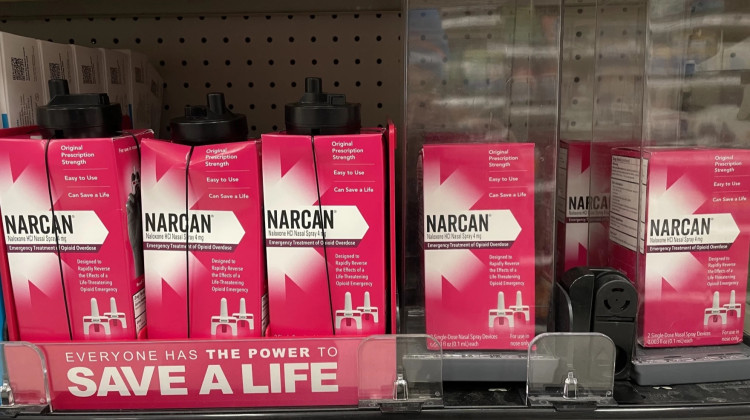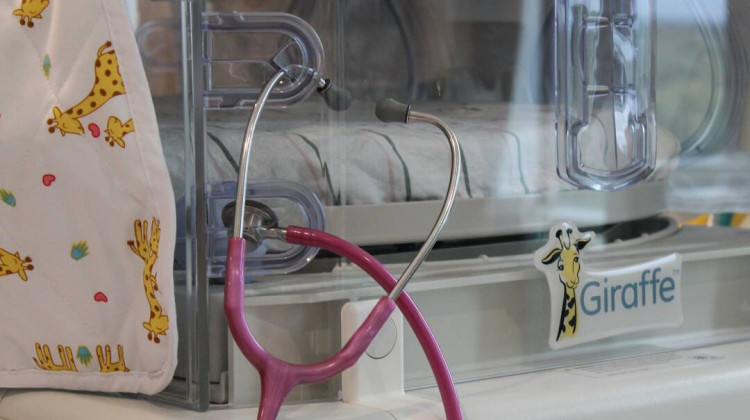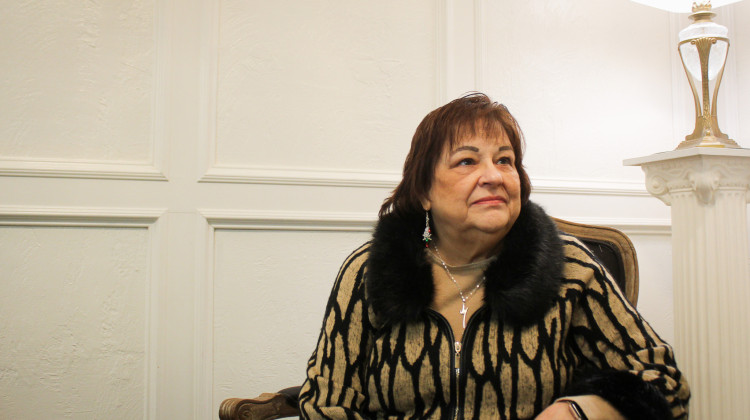A growing number of education and treatment programs support children and adults with what’s called trauma-informed care – where caregivers, social workers and teachers recognize that childhood trauma can manifest in behavioral and mental health challenges.
One Marion-based afterschool program has adopted this motto: assume trauma before drama.
The Brain Kitchen is in an 1888 historic house that's on the property of the Marion Public Library.
Amanda Drury is professor of youth ministry and practical theology at Indiana Wesleyan University.
"It was just empty, so when we approached them about using this house they were excited, we were excited," says Drury.
Drury became interested in trauma-informed care models while counseling women who had been sexually abused. She didn’t understand the shame.
"I said help me understand that, and she said ‘well if I had been gang-raped instead of just date-raped then that would justify why I feel this awful,'" says Drury.
Like many Indiana communities, Marion struggles with issues connected to poverty and addiction.
"Even the location of our house right now is known for being a drug-infested area, a number of the house in our area are condemned or we’ve got squatters, one across the street was recently torn down," says Drury.
This is the first year for the Brain Kitchen, and the 15 children here are bused in from Jay County, one of the poorest in the state. The trauma-informed curriculum was developed with the help of professors at Indiana Wesleyan. Some exercises use movement to calm and focus the brain. Drury gave this example of a finger touching exercise one child used after she got in a fight.
"She did that over and over again and you could see the anger leaving her body until she was just sitting there breathing calmly. And I remember whispering, ‘do you see what you just did?'" says Drury.
Michelle Gwaltney is the executive director of Families First, a nonprofit that works with families in crisis. She says there's a growing understanding that accounting for adverse childhood experiences or ACE’s can explain behaviors like short attention spans or anger outbursts.
"That there’s a reason behind this and maybe if we had a little more compassion and understanding about the reason we may be more successful with this child or this adult," says Drury.
She says this is a change from the past. Traditionally, when children in aftercare programs or schools had an emotional outburst, the caregiver lens could be – they are "just being difficult" or "not focused enough."
"Before we were saying what is wrong with the child, what is wrong with this adult? But now we’re saying 'what has happened?'" Gwaltney says.
Trauma-informed spaces can also provide a system of support, a mentor to talk to.
" Knowing that someone cares, having that support person, we all assume you know a lot of us grew up in really good families and we had support, that is not the case for everyone," says Gwaltney.
The Brain Kitchen also addresses root causes of the emotional challenges, including food insecurity.
Arma Jackson is one of the Brain Kitchen children. She has been impacted by cooking at the program.
"I want to make pizza and pasta and everything and then the restaurant will be the twins pizzeria and cake shop," says Jackson.
The children learn about healthy food, environmental science, gardening and composting.
"So you can put an organic cotton sock on one side and a Twinkie on the other and in a matter of time the sock is gone and the worms won’t even touch the Twinkie," says Drury.
The hope is that the children will take some of these lessons home.
"This little guy had made his soup and he went home to his house, that didn’t have electricity by the way, and he shared his soup with his neighbors," says Drury. "Just the sense of pride and accomplishment of knowing I can do something like this, I can bring life to my community."
Drury is looking for more grants to support another year for the Brain Kitchen.
 DONATE
DONATE









 Support WFYI. We can't do it without you.
Support WFYI. We can't do it without you.